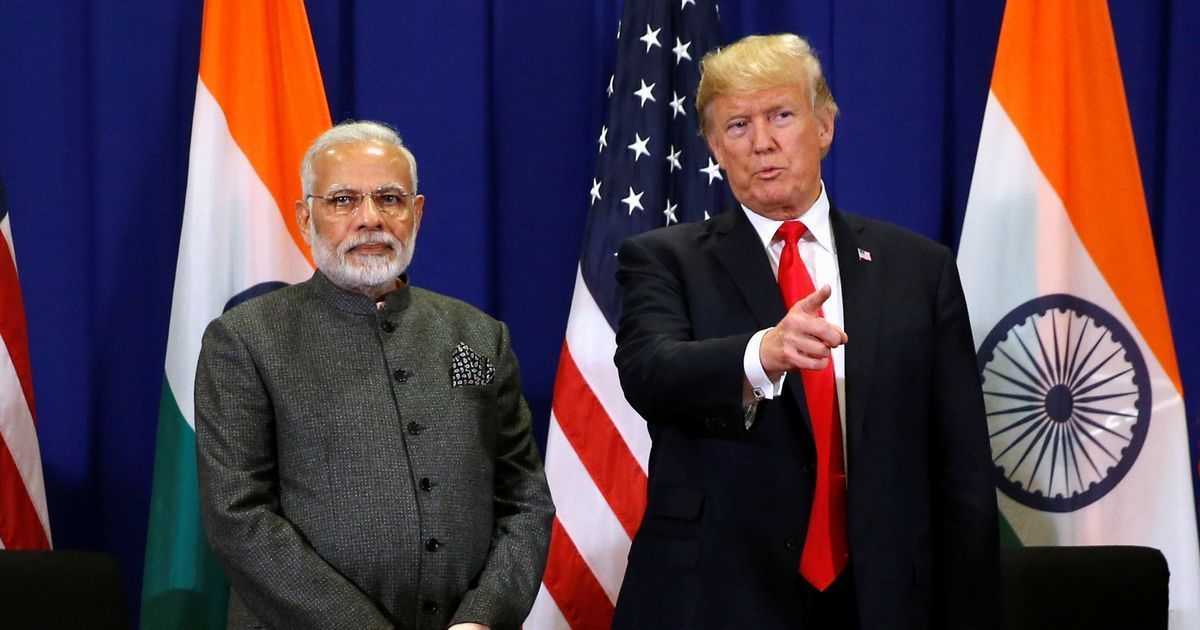World
India not giving accurate COVID death count, dirtying environment: Trump

US President Donald Trump has said that India does not give a “straight count” on the Covid-19 deaths and is dirtying the environment.
During the presidential debate on Tuesday night with Democratic Party presidential candidate Joe Biden, they both sparred over the extent of the deaths caused by the pandemic.
Biden said that the 200,000 people who died of the coronavirus in America were 20 per cent of the global death toll of 1 million while the US population is only 4 per cent of the world.
Trump shot back, “When you talk about numbers you know how many people dies in China? You know how many people dies in Russia? You don’t know how many people died in India. They don’t give you a straight count.”
Trump said that the pandemic was China’s fault, but Biden tried to deflect China’s role wanting to pin the blame for its ravages on Trump.
When climate change and the Paris Climate Agreement, from which Trump withdrew the US came up, he said, “China sends up real dirt into the air. Russia does. India does.”
Biden made a threat to countries that will not follow his environmental agenda warning Brazil that if it continues tearing down forests, “You’re gonna have significant economic consequences.”
The first debate held in Cleveland was about domestic issues and there were no international questions on the agenda set out by Chris Wallace of Fox News, who was the moderator for the debate. The mention of India and the other two were among passing references to foreign countries.
Earlier in his news conferences he had mentioned India’s record of conducting COVID-19 tests as the second-best in the world and only behind the US.
World
Lockdowns in China Force Urban Communities to Defy Censorship and Vent Frustration Online

Shanghai’s rich middle class is leading a wave of online dissent over the strict and prolonged lockdowns imposed in various parts of the country. Chinese internet censorship is struggling as patience is wearing thin in many urban centers, coming up with creative forms of online protests.
Social Media Posts Revealing Lockdown Tension in Shanghai
Drawn-out lockdowns are nothing new in China as authorities insist with the nation’s zero-Covid policy since the start of the pandemic. Currently over This time around, however, metropolitan areas like Shanghai are increasingly difficult to keep quiet, given that its more than 25 million residents have seen weeks of total isolation along with food shortages and many other service interruptions.
Dozens of towns and reportedly over 300 million Chinese citizens have been affected by lockdowns of different severity. As expected, urban netizens have been most outspoken over their difficulties by finding creative ways to get around state censorship and bans placed on topics, news comments and spontaneous campaigns.
Shanghai residents have been using mobile proxies and hijacking seemingly unrelated hashtags to talk about healthcare issues, delivery failures and the overall severity of their situation. The “positive energy” that the Chinese government wants to transmit during the recent prolonged series of lockdowns does not come naturally to those counting food supplies and online censors are working hard to filter words, trending topics and undesired social media sharing.
WeChat groups and message threads are under constant monitoring. Posts questioning the zero-Covid approach have been quickly deleted, including by leading Chinese health experts like Dr. Zhong Nanshan. Video footage is soon censored and protests and investigations are quickly made to disappear.
Where this has not worked, officials have exposed banners with warnings and outright threats like “watch your own mouth or face punishment”, while drones have been patrolling the city skies. Yet, if anything, this has led to further tensions and unspoken confrontation with Shanghai’s educated and affluent middle class.
Creative Online Solutions Harnessing Civic Energy
Announcements by Chinese social media that they would be publishing the IP addresses of users who “spread rumors” have not helped either. Tech industry research has shown that much of Asia’s tech-savvy population has a habit of using mobile proxies and other privacy tools, quickly finding workarounds to browse the internet freely and talk to the world about the hottest topics.
The sheer volume of forbidden posts is already a challenge for the very censorship system, experts explain. Unable to track all trending hashtags, state workers overlook topics that speak about the US, Ukraine or other popular news. Linking human rights elsewhere to their situation, Chinese online dissidents establish their informal channels and “hijack” the conversation to share personal or publicly relevant information about the Covid suppression in their town.
Sarcastic and satirical posts still dominate. Others hope to evade the censors by replacing words from famous poems or the national anthem. One thing is certain – social media, when harnessed with the right creativity, has proven its ability to mount pressure on the government in even some of the most strictly controlled tech environments like China.





















